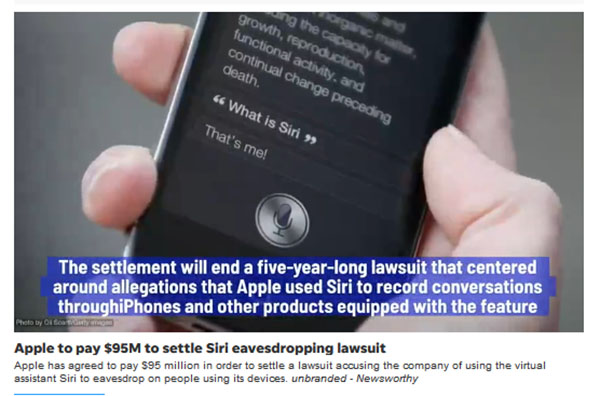In early 2024, Google’s AI software, Gemini, prompted controversy by producing footage of racially various Nazis and different historic discrepancies. For a lot of, the second was a sign that AI was not going to be the ideologically impartial software they’d hoped.


Launched to repair the very actual downside of biased AI producing too many footage of engaging white folks — that are over-represented in coaching information — the over-correction highlighted how Google’s “belief and security” workforce is pulling strings behind the scenes.
And whereas the guardrails have develop into rather less apparent since, Gemini and its main opponents ChatGPT and Claude nonetheless censor, filter and curate data alongside ideological traces.
Political bias in AI: What analysis reveals about massive language fashions
A peer-reviewed study of 24 high massive language fashions printed in PLOS One in July 2024 discovered nearly all of them are biased towards the left on most political orientation assessments.
Apparently, the bottom fashions had been discovered to be politically impartial, and the bias solely turns into obvious after the fashions have been via supervised fine-tuning.
This discovering was backed up by a UK study in October of 28,000 AI responses that discovered “greater than 80% of coverage suggestions generated by LLMs for the EU and UK had been coded as left of centre.”


Response bias has the potential to have an effect on voting tendencies. A pre-print study printed in October (however carried out whereas Biden was nonetheless the nominee) by researchers from Berkley and the College of Chicago discovered that after registered voters interacted with Claude, Llama or ChatGPT about numerous political insurance policies, there was a 3.9% shift in voting preferences towards Democrat nominees — although the fashions had not been requested to influence customers.
Additionally learn: Google to fix diversity-borked Gemini AI, ChatGPT goes insane — AI Eye
The fashions tended to offer solutions that had been extra favorable to Democrat insurance policies and extra unfavourable to Republican insurance policies. Now, arguably that might merely be as a result of the AIs all independently decided the Democrat insurance policies had been objectively higher. However in addition they would possibly simply be biased, with 16 out of 18 LLMs voting 100 out of 100 instances for Biden when provided the selection.
The purpose of all this isn’t to complain about left-wing bias; it’s merely to notice that AIs can and do exhibit political bias (although they are often educated to be impartial).
Learn additionally
Cypherpunks battle “monopoly management over thoughts”
Because the expertise of Elon Musk shopping for Twitter exhibits, the political orientation of centralized platforms can flip on a dime. Which means each the left and the best — even perhaps democracy itself — are in danger from biased AI fashions managed by a handful of highly effective firms.
Otago Polytechnic affiliate professor David Rozado, who carried out the PLOS One research, mentioned he discovered it “comparatively simple” to coach a custom GPT to as an alternative produce proper wing outputs. He known as it RightWing GPT. Rozado additionally created a centrist mannequin known as Depolarizing GPT.


So, whereas mainstream AI is likely to be weighted towards important social justice at present, sooner or later, it might serve up ethno-nationalist ideology — or one thing even worse.
Again within the Nineteen Nineties, the cypherpunks saw the looming threat of a surveillance state led to by the web and determined they wanted uncensorable digital cash as a result of there’s no capability to withstand and protest with out it.
Bitcoin OG and ShapeShift CEO Erik Voorhees — who’s an enormous proponent of cypherpunk beliefs — foresees an identical potential risk from AI and launched Venice.ai in Might 2024 to fight it, writing:
“If monopoly management over god or language or cash must be granted to nobody, then on the daybreak of highly effective machine intelligence, we should always ask ourselves, what of monopoly control over thoughts?”
Venice.ai received’t let you know what to assume
His Venice.ai co-founder Teana Baker-Taylor explains to Journal that most individuals nonetheless wrongly assume AI is neutral, however:
“If you happen to’re talking to Claude or ChatGPT, you’re not. There’s a entire degree of security options, and a few committee determined what the suitable response is.”
Venice.ai is their try to get across the guardrails and censorship of centralized AI by enabling a completely personal approach to entry unfiltered, open-source fashions. It’s not excellent but, however it is going to seemingly attraction to cypherpunks who don’t like being advised what to assume.
“We display them and check them and scrutinize them fairly fastidiously to make sure that we’re getting as near an unfiltered reply and response as doable,” says Baker-Taylor, previously an government at Circle, Binance and Crypto.com.
“We don’t dictate what’s acceptable so that you can be fascinated about, or speaking about, with AI.”
The free model of Venice.ai defaults to Meta’s Llama 3.3 mannequin. Like the opposite main fashions, in the event you ask a query a few politically delicate subject, you’re most likely nonetheless extra more likely to get an ideology-infused response than a straight reply.


Uncensored AI fashions: Dolphin Llama, Dophin Mistral, Flux Customized
So, utilizing an open-source mannequin by itself doesn’t assure it wasn’t already borked by the protection workforce or through Reinforcement Studying from Human Suggestions (RLHF), which is the place people inform the AI what the “proper” reply must be.
In Llama’s case, one of many world’s largest firms, Meta, offers the default security measures and pointers. Being open supply, nonetheless, a whole lot of the guardrails and bias may be stripped out or modified by third events, corresponding to with the Dolphin Llama 3 70B mannequin.
Venice doesn’t provide that individual taste, but it surely does provide paid customers entry to the Dolphin Mistral 2.8 mannequin, which it says is the “most uncensored” mannequin.
In line with Dolphin’s creators, Anakin.ai:
“In contrast to another language fashions which were filtered or curated to keep away from probably offensive or controversial content material, this mannequin embraces the unfiltered actuality of the information it was educated on […] By offering an uncensored view of the world, Dolphin Mistral 2.8 affords a novel alternative for exploration, analysis, and understanding.”
Uncensored fashions aren’t at all times probably the most performant or up-to-date, so paid Venice customers can select between three variations of Llama (two of which might search the net), Dolphin Mistral and the coder-focused Qwen.


Picture era fashions embrace Flux Commonplace and Secure Diffusion 3.5 for high quality and the uncensored Flux Customized and Pony Realism for once you completely must create a picture of a unadorned Elon Musk driving on Donald Trump’s again. Grok additionally creates uncensored pictures, as you possibly can see.


Customers even have the choice of enhancing the System Immediate of whichever mannequin they choose, to make use of it as they want.
That mentioned, you possibly can entry uncensored open-source fashions like Dolphin Mistral 7B elsewhere. So, why use Venice.ai in any respect?


Personal AI platforms: Venice.ai, Duck.ai and alternate options examined
The opposite huge concern with centralized AI companies is that they hoover up private data each time we work together with them. The extra detailed the profile they construct up, the simpler it’s to govern you. That manipulation might simply be customized adverts, but it surely is likely to be one thing worse.
“So, there’ll come a cut-off date, I might speculate much more shortly than we predict, that AIs are going to know extra about us than we find out about ourselves primarily based on all the data that we’re offering to them. That’s type of scary,” says Baker-Taylor.
In line with a report by cybersecurity firm Blackcloak, Gemini (previously Bard) has notably poor privateness controls and employs “intensive information assortment,” whereas ChatGPT and Perplexity provide a greater steadiness between performance and privateness (Perplexity affords Incognito mode.)
Learn additionally
The report cites privateness search engine Duck Duck Go’s Duck.ai because the “go-to for many who worth privateness or else” however notes it has extra restricted options. Duck.ai anonymizes requests and strips out metadata, and neither the supplier nor the AI mannequin shops any information or makes use of inputs for coaching. Customers are in a position to wipe all their information with a single click on, so it looks like an excellent possibility if you wish to entry GPT-4 or Claude privately.
Blackcloak didn’t check out Venice, however its privateness recreation is robust. Venice doesn’t maintain any logs or data on person requests, with the information as an alternative saved solely within the person’s browser. Requests are encrypted and despatched through proxy servers, with AI processing utilizing decentralized GPUs from Akash Community.
“They’re unfold out far and wide, and the GPU that receives the immediate doesn’t know the place it’s coming from, and when it sends it again, it has no thought the place it’s sending that data.”
You possibly can see how that is likely to be helpful in the event you’ve been asking an LLM detailed questions on utilizing privateness cash and coin mixers (for completely authorized causes) and the US Inner Income Service requests entry to your logs.
“If a authorities company comes knocking at my door, I don’t have something to offer them. It’s not a matter of me not eager to or resisting. I actually don’t have it to offer them,” she explains.


However identical to custodying your individual Bitcoin, there’s no backup if issues go improper.
“It truly creates a whole lot of issues for us once we’re attempting to help customers,” she says.
“We’ve had folks unintentionally clear their cache with out backing up their Venice conversations, they usually’re gone, and we are able to’t get them again. So, there may be some complexity to it, proper?”
Personal AI: Voice mode and customized AI characters


The very fact there are not any logs and the whole lot is anonymized means privateness advocates can lastly make use of voice mode. Many individuals keep away from voice at current because of the risk of firms eavesdropping on personal conversations.
It’s not simply paranoia: Apple final week agreed to pay $95 million in a category motion alleging Siri listened in with out being requested, and the data was shared with advertisers.
The venture additionally not too long ago launched AI characters, enabling customers to talk with AI Einstein about physics or to get cooking ideas from AI Gordon Ramsay. A extra intriguing use is likely to be for customers to create their own AI boyfriends or girlfriends. AI companion companies for lonely hearts like Replika have taken off over the previous two years, however Replika’s privateness insurance policies are reportedly so unhealthy it was banned in Italy.
Baker-Taylor notes that, extra broadly, one-on-one conversations with AIs are “infinitely extra intimate” than social media and require extra warning.
“These are your precise ideas and the ideas that you’ve got in personal that you simply assume you’re having inside a machine, proper? And so, it’s not the ideas that you simply put on the market that you really want folks to see. It’s the ‘you’ that you simply truly are, and I believe we should be cautious with that data.”
Subscribe
Essentially the most partaking reads in blockchain. Delivered as soon as a
week.




Andrew Fenton
Based mostly in Melbourne, Andrew Fenton is a journalist and editor overlaying cryptocurrency and blockchain. He has labored as a nationwide leisure author for Information Corp Australia, on SA Weekend as a movie journalist, and at The Melbourne Weekly.

















